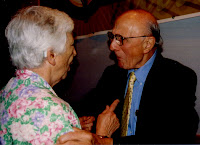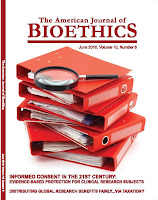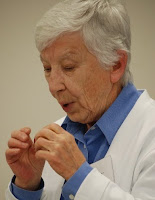
Rosemary Flanigan
June 25, 2010
Just as I was reading a short squib on conscience by one of my favorite philosophers, John Kavanaugh from St. Louis University, my colleague John Carney sent out a comment he found on the net that troubled me.
First, Kavanaugh on conscience—“a particular kind of judgment—a moral judgment—by which we apply our knowledge of good and evil to practical action.”
Of course. It’s what we can’t help doing thousands of times a day: making moral judgments about what we read, hear, see. Without those judgments, of course, there could be no ethical reflection because they serve as the “meat” for analysis.
But it’s not enough that we exercise our conscience; we also have to be sure it’s “informed” properly. And that means evidence, information and data. (Just because your conscience is certain doesn’t mean it’s correct!)
Now, jump with me to John’s reading this remark on the net this morning from another online ethics discussion group. A Yale emergency medicine chief said, “Ethics consults are exceedingly rare as the consultation process is typically deemed to be too burdensome and bureaucratic in order to be functional—hell, we can’t even get a plastic surgeon to come in a timely fashion, let alone an ethics consultation.”
See where I’m going? Of late, whenever I use a case in ethics brown bag sessions, I start out asking people to tell the group their initial moral judgment—and we go on from there. How many times we have changed our own minds as we gather evidence, information and data.
So must it be for an ethics committee. Sorry, Yale ER medicine man, we ethics committee members ought to respond fast, get to where you want us to be, but then we can’t proceed at the breakneck speed that medical trauma decisions must be made.
It’s just a different kettle of fish. ANYONE DISAGREE???
Labels: medical ethics; hospital ethics committees; moral judgement; bioethics













